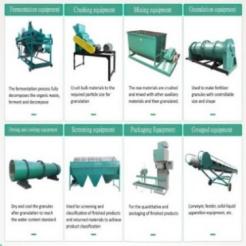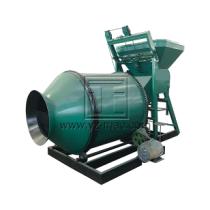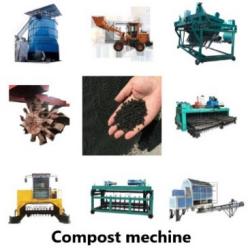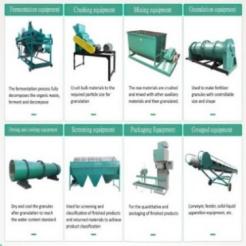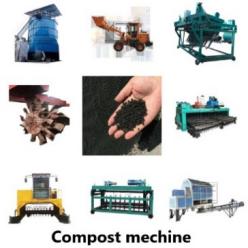Commercial composting equipment for sale
Professional Solutions for Sustainable Waste Management
Introduction:
The sale of commercial composting equipment plays a crucial role in the field of sustainable waste management. These specialized solutions offer an efficient and sustainable way to handle organic waste while creating value for businesses and organizations. In this article, we will explore the advantages of commercial composting equipment and how to choose the right equipment for your needs.
Advantages of Commercial Composting Equipment:
1.Improved Waste Diversion: Commercial composting equipment effectively processes large volumes of organic waste, including food scraps, agricultural waste, and yard trimmings. By controlling the composting process, these equipment accelerate the decomposition of organic materials, transforming them into valuable compost and reducing reliance on landfills.
2.High-Quality Compost Production: Commercial composting equipment ensures the quality and stability of compost. With temperature control, proper ventilation, and moisture management, these equipment facilitate rapid and uniform decomposition of organic waste, resulting in highly nutritious compost. This high-quality compost can be used in agriculture, horticulture, landscaping, and other applications, promoting healthy plant growth.
3.Environmental Impact Reduction: Commercial composting equipment helps minimize the negative environmental impacts of waste. By composting organic waste, it reduces greenhouse gas emissions and prevents soil and water pollution. Additionally, commercial composting equipment recycles nutrients, allowing their reuse in the soil, thus promoting soil health and ecosystem protection.
Choosing the Right Commercial Composting Equipment:
1.Capacity and Scale: Select the appropriate composting equipment capacity and scale based on the needs of your business or organization. Consider waste generation, space limitations, and the expected compost production volume to determine the required equipment size.
2.Technology and Features: Research the technology and features of different commercial composting equipment to understand their efficiency and control capabilities during the composting process. Pay attention to key features such as temperature control, ventilation systems, composting time, and moisture management.
3.Reliability and Support: Choose a reliable supplier that offers high-quality commercial composting equipment and after-sales support. Evaluate the supplier’s reputation, customer reviews, and technical support services to ensure long-term reliable operation of the equipment.
Conclusion:
The sale of commercial composting equipment provides businesses and organizations with solutions for achieving sustainable waste management. These equipment improve waste diversion, produce high-quality compost, and reduce environmental impacts. Choosing the right commercial composting equipment involves considering factors such as capacity, technology, and reliability. Investing in commercial composting equipment not only contributes to environmental preservation but also brings economic benefits and opportunities for sustainable development to businesses.



